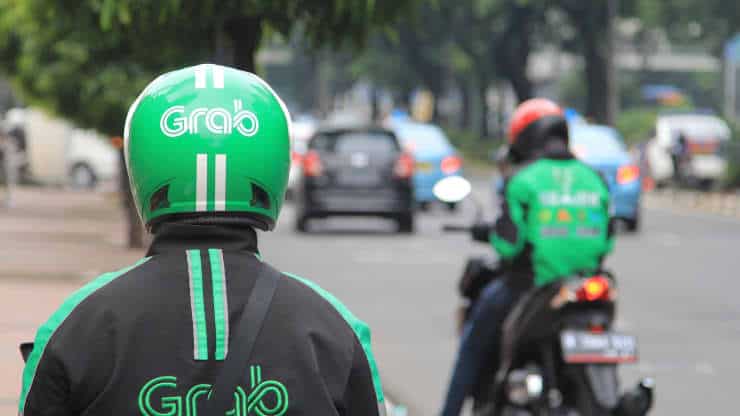
Southeast Asia’s ride-hailing giant Grab fell sharply on its first day trading on the Nasdaq, after becoming the largest-ever company to close a SPAC merger and go public.
Shares opened the trading day at $13.06 apiece under ticker symbol “GRAB,” following a deal with Altimeter Growth Corp. that valued the four-time CNBC Disruptor 50 company at nearly $40 billion. But they lost more than a fifth of their value by Thursday’s closing bell, finishing more than 20% lower at $8.75 apiece.
Grab, ranked No. 16 on last year’s CNBC Disruptor 50 list, sells an array of digital services such as transportation, food delivery, hotel bookings, online banking, mobile payments and insurance services from its app — earning the “super app” title. It operates in most of Southeast Asia, serving more than 187 million users in over 465 cities across eight countries. Still, revenue at the company was down 9% year-over-year as net losses expanded to $988 million, up from $621 million.
Grab’s early backers include SoftBank, Toyota, Hyundai Motor and China’s Didi Chuxing, among others.
“We don’t view growth and profitability as mutually exclusive. We operate in a market with a large market opportunity and low penetration across our verticals,” Grab co-founder and CEO Anthony Tan said Tuesday on CNBC’s “Squawk Box.” “We do believe we have a cost leadership advantage.”
A SPAC, which stands for special purpose acquisition company, is created to raise capital from public markets and then use that cash to merge with a private company and take it public within a two-year timeframe.
Investors in SPACs as a rule do not know the identity of the firm that will be targeted for merger. After a blockbuster year, there are currently over 400 SPACs actively looking for a target company, according to data from Wolfe Research.
The Grab deal included a record $4 billion private placement led by Altimeter Capital Management. So-called PIPE financing is a mechanism for companies to raise capital from a select group of investors that make the final market debut possible. BlackRock, T. Rowe Price Associates, Morgan Stanley Investment Management’s Counterpoint Global arm and Janus Henderson Investors are also participating.
“Anthony, [Tan Hooi] Ling, and the rest of the talented management team at Grab have built a superapp across mobility, delivery, and financial services — together which has the potential to fuel the dramatically changing and growing digital economy in Southeast Asia”, said Denny Fish, portfolio manager and technology sector lead at Janus Henderson Investors said in an email to CNBC. “Given its purpose based mission, Grab is in a unique position to benefit from this historical shift.”
The proprietary CNBC SPAC 50 Index, which tracks the 50 largest U.S.-based pre-merger blank-check deals by market cap, soared earlier this year but has since suffered a steep decline and is now negative on the year. The CNBC SPAC Post Deal Index, which is comprised of the largest SPACs that have come to market and announced a target acquisition, has seen its year-to-date gains wiped out.
Still, the SPAC market staged a comeback before the recent market turmoil triggered by the omicron variant, with issuance hitting an eight-month high as the industry continues to ride out regulatory challenges. The number of new deals in October nearly doubled that in September and was also higher than the total during the same time last year, according to SPACInsider and CNBC calculations.





























